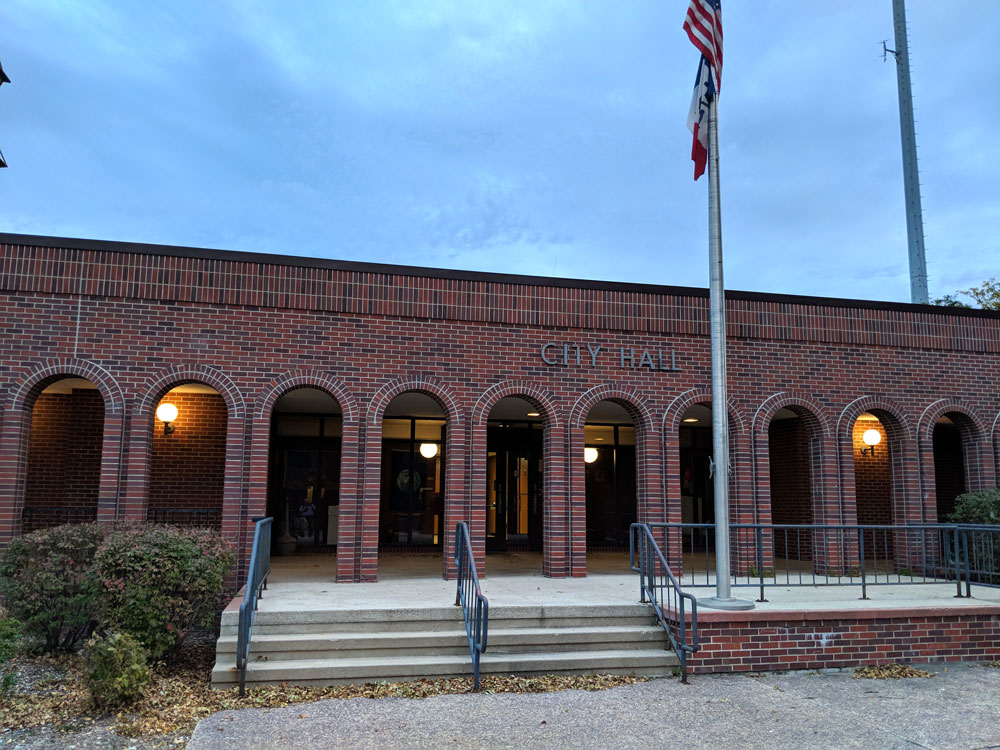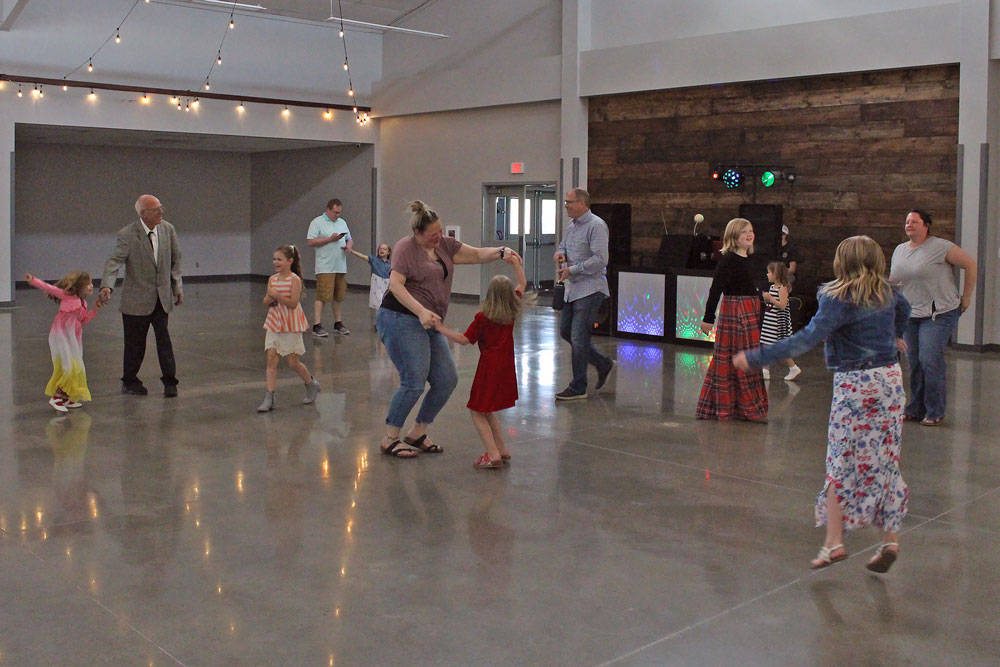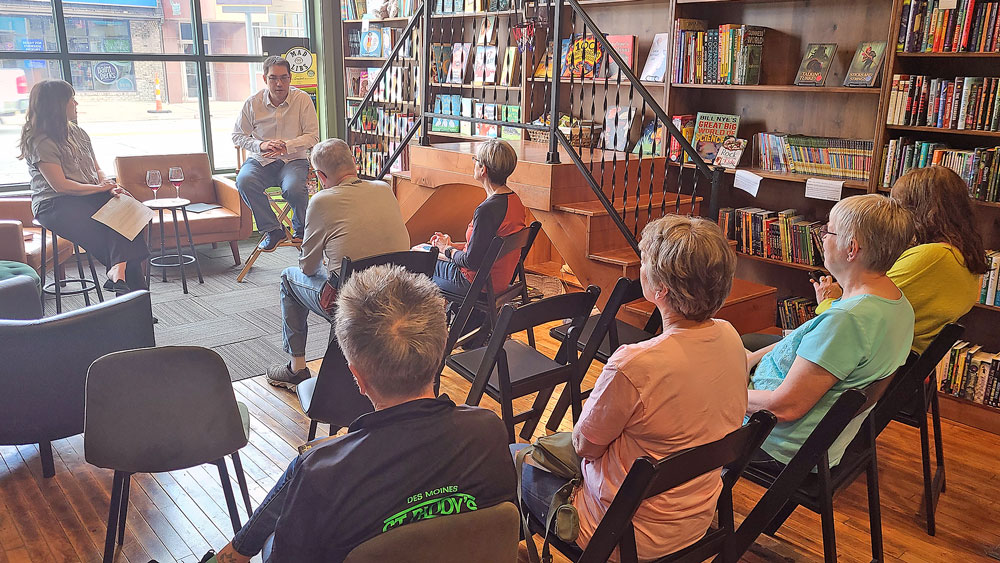Supervisors pass Floyd County budget after public hearing

By Bob Steenson, bsteenson@charlescitypress.com
Floyd County Supervisors spent more than an hour Tuesday afternoon being peppered with questions, complaints and criticism regarding the county budget for fiscal year 2021-22, which will begin July 1.
In the end, the board members thanked the people at the public hearing for their input, said they hoped it was an opportunity for them to learn a little more about how the budget process works, then passed the budget as it has been presented.
The public hearing on the annual budget was a repeat — or perhaps a continuation — of a hearing that had been held March 1 regarding the maximum property tax the Board of Supervisors was proposing to collect for the county next fiscal year.
The people who spoke at the hearing Tuesday, as well as at the previous hearing, were voicing their objections to an 11% increase in the part of the county property tax paid by all property owners in the county, and a 5.5% increase in the total county tax paid by rural residents.
As a result of those rate increases and an increase in overall county property valuations, the county plans to collect about $1.15 million dollars more in property taxes next fiscal year than in the current year.
Much of that extra revenue will go toward paying for the new county law enforcement center (LEC) and courthouse updates project, and that project was the focus of almost all the discussion during the hearing.
John Pearson, a member of the Floyd County Farm Bureau board, started off the comments, saying he was there to voice the group’s two main concerns about the proposed budget.
“One, the Floyd County Farm Bureau is concerned about the trend of increasing property taxes over the past few years. Two of the past three years the county property taxes have increased over 10%,” Pearson said.
“We are concerned that the tax increases over the past couple of years will continue into the future, creating an unsustainable burden on property tax payers,” he said.
“Our second concern — more than two-thirds of Floyd County voters supported spending $13½ million on the new law enforcement center. But we’re concerned that the county moved forward and spent additional funds in cost overruns for the project, and didn’t reduce the size of the project.”
Pearson said there are about 1,600 members of the Farm Bureau in Floyd County.
A couple of the people who spoke wondered why the property tax payers of the county had to shoulder the extra cost of the LEC project. Others said the supervisors should have stopped the project once it became clear it was going to cost much more than had previously been thought.
The project had started out with an estimated cost of about $13.5 million, and that’s the amount of general obligation bonds that were issued to finance the project after county voters approved the bond sale in a special election in 2018.
But when bids on the project were opened a year and a half later, the construction cost had increased to about $16.4 million, plus additional expenses. The latest estimate including updates to the courthouse — which have been part of the project from the beginning — puts the total price at about $18.8 million.
Some of the additional cost increase is because of changes that have been made since the original bids were approved, and many of those changes, the supervisors say, are because of items that were missing or incorrect in the original plans prepared by the project architect, Prochaska & Associates, of Omaha.
The supervisors also note it was Prochaska that had come up with the original cost estimate upon which the bond issue was based.
Part of the discussion Tuesday concerned more than $3 million dollars that the county now expects to receive through funding from the recently passed federal COVID-19 American Rescue Plan.
The supervisors and County Auditor Gloria Carr said they would look for every opportunity they could find to use those funds toward the LEC and courthouse project, but they were waiting for information from the U.S. Treasury Department on how the money could be spent.
“If we use it inappropriately they’ll claw that money back, so we have to be careful how we use it,” Carr said.
Some of the county residents suggested putting the LEC and courthouse project on hold.
Supervisor Linda Tjaden said the LEC is nearly complete, and training is expected to begin next month, so it would make no sense to stop that project now.
The county needs a new jail because the old jail on the top floor of the courthouse has been determined by the state jail inspector to be unsafe for inmates and county employees and is insufficient for current county needs.
Scott Clark suggested just pausing the courthouse updates part of the project.
“Wait a year to do those and help get some of this under control before we keep spending more and more,” he said.
Tjaden said the supervisors look at almost every meeting for ways that make sense to scale back the project and separate “needs” from “wants,” but some parts of the courthouse updates are tied together with the LEC.
The heating, ventilation and air conditioning (HVAC) system in the LEC was designed to also provide temperature and air movement control for the courthouse, for example, she said.
“If we stop certain things, what happens if we don’t do the window project? We’ve looked at that,” she said. “If we don’t do HVAC we’ve got an old boiler system that’s possibly needing repairs.”
Some of the people at the hearing wondered how the cost had gotten so high without the board letting the county know about it.
Tjaden said, “We didn’t do this behind closed doors. We’ve had many meetings we were discussing before the bids actually came in and after they did. They’re open meetings. They were publicized. We were transparent on that.”
Supervisor Doug Kamm said the board spent a couple of months after the bids were opened deciding what to do and coming up with a plan to go forward.
“I truly believe — and you’ll never, ever get me not to believe this — that we saved Floyd County money by doing what we did,” Kamm said. “If we would have stopped that project and waited for other bids, it would have been a year down the road. You would have started virtually from zero again.”
Scott Andrews, who spoke at the hearing March 1 and again Tuesday, said, “You could have pared it down so it was a smaller project. We didn’t have to plow ahead. We didn’t have to keep going forward.”
Supervisor Roy Schwickerath answered, “We went through a lot determining whether we should do this project at that time, because we weren’t happy with the cost that it was going to be. We looked a lot at, could we do it for less money? There was a lot of discussion about, should we go out and rebid?
“I for one, and I think my partners felt the same way, we are doing the right thing. We didn’t see a path that was better,” he said.
Tjaden countered a suggestion that money was being spent on unnecessary items, again declaring false the claim that the LEC contains marble floors.
“There is no marble in the LEC,” she said.
Supervisor Kamm said, “Don’t believe everything you read on Facebook.”
Carr and the supervisors said they had come up with a plan to cover the extra costs and decided it was in the best interests of the county to proceed.
Carr said that by making changes up front, the difference in the original estimate and the bids was brought down to about $4 million.
The county had a healthy general fund balance, and could use part of that toward the project. The county was also able to sell some of the bonds as premium bonds, raising an additional $1.8 million. And the county was counting on interest from investing the bond money before it was needed, and from interest on the general fund balance.
Someone at the meeting asked what had happened to the plan.
Interest rates plummeted because of COVID-19, Carr said, and the county lost several hundred thousand dollars it had been counting on. That, plus additional costs, resulted in the current shortfall of about $800,000, Carr said.







Social Share